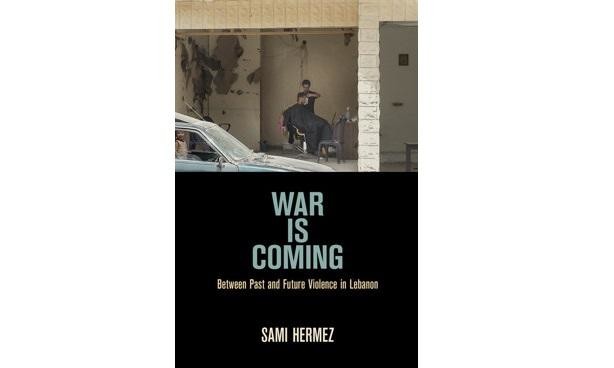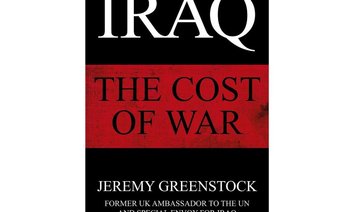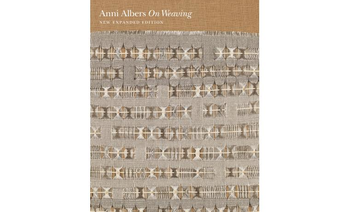The title of this book does not reflect the content. In other words, author Sami Hermez is not speculating on the probabilities of another war in Lebanon and is instead trying to explain how Lebanese from all political parties lived during the war and why they cannot forget the memories of past conflicts. He talks of how an impromptu conversation, a family gathering or a lunch with friends can turn into a discussion about both past and future violence.
Although this book may lead to a broader understanding of violence in countries experiencing conflicts, such as Afghanistan and Iraq, Lebanon remains a unique case. In this small country coexists 18 religions and, since 2007, 81 political parties. The first intercommunal fighting that the book discusses took place between the Druze and the Maronite communities in the Mount Lebanon area from 1838 till 1860. A century later, the 1948 Palestine war caused the exodus of 700,000 Palestinian refugees. The civil war, which began in July 1958, was fought between forces for and against the Baghdad Pact. Then, the clashes between the Lebanese Phalanges Party and the Palestine Liberation Organization on April 13, 1975, marked the beginning of the Lebanese Civil War followed in December 1975 by the Christian militia’s massacre of Muslims in Beirut, known as Black Saturday. Since then, Lebanon has been enmeshed in an open-ended cycle of violence. The 15-year-long civil war, which ended in 1990, was not a continuous war, but a series of battles followed by numerous cease-fires. In July 2006, Israel waged a month-long war on Lebanon followed a year later by an armed insurrection in the Nahr Al-Bared Palestinian refugee camp between the Lebanese army and Fateh Al-Islam. The first decade of the new millennium followed this pattern, with multiple tense periods of hostility and fighting.
The people who stayed in the country adapted to this new way of life, a pattern of periods of war followed by a temporary state of peace. However, it is when the armed confrontation has ceased and life regains a sense of normalcy that people believe that war is always on the horizon. “Political violence continues to structure our daily lives in supposed peacetime,” the author writes.
Despite the tensions, the Lebanese people have always tried to lead a normal life during the periods of war. “While the war went on above and around us, while the displaced tended to their lives…we ate at Roadster, had meetings, went out for a drink, worked on humanitarian relief operations and conducted our everyday lives the way we saw fit,” says Dima, an architect and grassroots activist who is interviewed in the book.
The author himself recalls his feelings and how quickly he adapted to the situation when he was in a combat zone during the war in 2006. After being picked up by the army for taking pictures too close to a military base, he ended up spending the night in jail. He learned that other convicts had been evacuated because military locations were targeted by the Israelis. Hermez heard the bombs exploding in the distance, all the time wondering if the next one would hit the prison. “Fear struck me as I anticipated the bombs and heard the explosions, followed by the momentary calm of knowing this time my location was not the target. I was exhausted and soon, despite the fear, I fell asleep on the humid ground, separated from it by a thin, hard, rancid mat. Something about the bombings made them both absent and present though their sounds and the potential to annihilate me at any moment, an absent presence that I managed to acquaint myself with enough to sleep through much of the night.”
During the 2006 war, Broummana, a lovely town nestled in the mountains, was the place to be if you wanted to have fun despite the war. Many Lebanese believed that going out with friends and having a good time was a normal thing to do.
“Publicly, at the same time, I often heard the outings defended as a form of resilience, a motivation to keep the economy moving, or as another form of resistance known as ‘sumud,’ or perseverance,” Hermez writes.
Almost bizarrely, many Lebanese from all walks of life told the author how they wished the days of war would return.
Indeed the so-called golden years of Lebanon, and Beirut in particular, took place from the 1960s to the 1970s — the era of war and strife. Power blackouts and garbage blocking the streets are said to have been less common during the war than they are today. Some claim that that even in the middle of the civil war there was more hope for the country than there is today.
In the end, the Lebanese attitude to violence is based to the principle of “No Victor, No Vanquished.” Saeb Salam, a former prime minister, was the first to coin the slogan that implies that political parties or sects in Lebanon cannot eliminate each other. All political groupings must be represented in the political system. This principle has been constantly evoked after each conflict to ensure “coexistence and national unity” in order for Lebanon to remain a place that is tolerant.
The author highlights the fact that the lack of winners and losers “contributes to the idea that the causes of the war are unresolved…The political leadership in Lebanon is responsible for the continuation of violence, which not only remains a central and societal concern to this day but also facilitates its reemergence in the future.”
Book Review: Living through conflict in Lebanon
Book Review: Living through conflict in Lebanon

What We Are Reading Today: Ridding the World of Landmines

- Afghanistan and Angola are two of the countries, among other nations, with a large number of landmines
Authors: Kjell Bjork
This book offers a study on how global treaties can be used to establish successful national programs concerned with mine action programs, focusing on the capacity of world governments to implement the convention on the prohibition of the use, stockpiling, production and transfer of anti-personnel mines.
Afghanistan and Angola are two of the countries, among other nations, with a large number of landmines.
This book sets out to answer the research considering the disparate levels of success among countries committed to implementing the Mine Ban Treaty, according to a review on goodreads.com.
What We Are Reading Today: ‘Laminar Flow Theory’

- The Navier-Stokes equations, first derived in the 18th century, serve as an accurate mathematical model with which to describe the flow of a broad class of real fluids
Author: P. A. LAGERSTORM
Fluid mechanics is one of the greatest accomplishments of classical physics.
The Navier-Stokes equations, first derived in the 18th century, serve as an accurate mathematical model with which to describe the flow of a broad class of real fluids.
Not only is the subject of interest to mathematicians and physicists, but it is also indispensable to mechanical, aeronautical, and chemical engineers, who have to apply the equations to real-world examples, such as the flow of air around an aircraft wing or the motion of liquid droplets in a suspension.
Saudi author brings stories closer to home

- Kendah Jambi has turned to local folklore and southern Saudi Arabia for her next novel
RIYADH: When Saudi writer Kendah Jambi released “The Epic of Frost” in 2024, she wrapped up a fantasy trilogy that had been nearly a decade in the making.
Spanning three titles published by Adab Book — “The Voyagers” (2021), “The Historian” (2023), and “The Epic of Frost” (2024) — the trilogy reflects a growing interest in Arabic speculative fiction and highlights her steady rise within the Kingdom’s evolving literary scene.
With the series complete, the 25-year-old has turned the page with a new project: “Khalil,” a standalone novel rooted in Saudi heritage and slated for release this year.

Reflecting on her journey, she told Arab News: “In comparison to when I first started, it has definitely become a lot easier to write and complete a novel in shorter amount of time.”
Her works have resonated with readers across Saudi Arabia who seek her out at the region’s various book fairs. Jambi said that she is touched by the kindness they express and their connection to her works. “I have young authors flooding my socials daily talking about how my work inspired them to write and stay persistent.”
HIGHLIGHTS
• Kendah Jambi’s ‘The Voyager’ fantasy trilogy gained momentum through its Manga Arabia adaptation.
• The writer’s next project ‘Khalil’ is a stand-alone novel rooted in Saudi heritage and slated for release this year.
• Her works have resonated with readers across Saudi Arabia who seek her out at the region’s various book fairs.
She added that her goal has always been “to make the world fall in love with the Arabic language.”

Her trilogy also gained momentum through its Manga Arabia adaptation, which Jambi said brought new attention to the original novels.
This, she said, brings the story full circle as “The Voyagers” was written originally to be a manga series and ended up becoming a novel.
Her advice to aspiring writers is grounded in experience: “Always chase what you believe in, no matter how long it takes. It took me seven years to write my first book, and I never regret taking my time,” she said.

While her earlier work leaned heavily into fantasy, her upcoming novel “Khalil” represents a shift in setting and tone.
“‘Khalil’ takes place in our modern-day Saudi Arabia across different regions. It reflects our heritage and traditions while being completely inspired by Arabian mythology,” she explained.
One such reimagining involves the folklore figure “Um Al-Saaf wa Al-Leef,” whom she described as “a witch who sits atop palm trees and eats children.”

In Jambi’s version, the character is still a deranged witch, but she does not eat children — instead, she has children named Al-Saaf and Al-Leef.
Jambi emphasized the importance of cultural accuracy in portraying southern Saudi characters, noting that her work “stays true to the people … I definitely made sure of that with help from friends native to that region.
“The characters are people whom Saudi readers can relate to as they hold similar values and have a familiar upbringing,” she added.
Explaining the shift from fantasy to a narrative more grounded in reality, Jambi said: “My pen is free and can go wherever it wants.”
She sees the current moment in Saudi Arabia as particularly significant for writers, with growing cultural initiatives under Vision 2030.
Maram Al-Samman, who read Jambi’s trilogy, told Arab News: “I see in Kendah Jambi a new and promising voice in Arabic fantasy literature … There are some moments that might lack narrative coherence, but her boldness in introducing new ideas and her creation of complex characters distinguish her work.”
Reflecting on her overall impression, Al-Samman added: “Personally, I believe her writing is worth reading, especially for those who enjoy novels that expand the imagination and open the door to deep thought.”
With the trilogy and her upcoming standalone novel sharing the same narrative universe, Jambi has created an expansive literary ecosystem where the fantastical and the familiar coexist.
What We Are Reading Today: Agents of Change

Author: Christina Hillsberg
Christina Hillsberg’s “Agents of Change” deftly tackles not just the fight for gender equality at the Cia, but the current dilemma the agency faces when dealing with the culmination of a decades-long culture of sexual harassment and assault.
In the book, Hillsberg pays a long overdue tribute to the survivors and thrivers, the indispensable groundbreakers, and defiant rabble-rousers who made the choice to change their lives and in turn, changed history.
What We Are Reading Today: Midnight in Chernobyl by Adam Higginbotham

“Midnight In Chernobyl” offers a harrowing and compelling narrative of the 1986 Chernobyl disaster through the eyes of the men and women who witnessed it firsthand.
Chernobyl has become lodged in the collective nightmares of the world. The book is an indelible portrait of history’s worst nuclear disaster, of human resilience and ingenuity and the lessons learned when mankind seeks to bend the natural world to his will remain not just vital but necessary.
This book makes for a masterful non-fiction thriller, according to a review on goodreads.com.



















